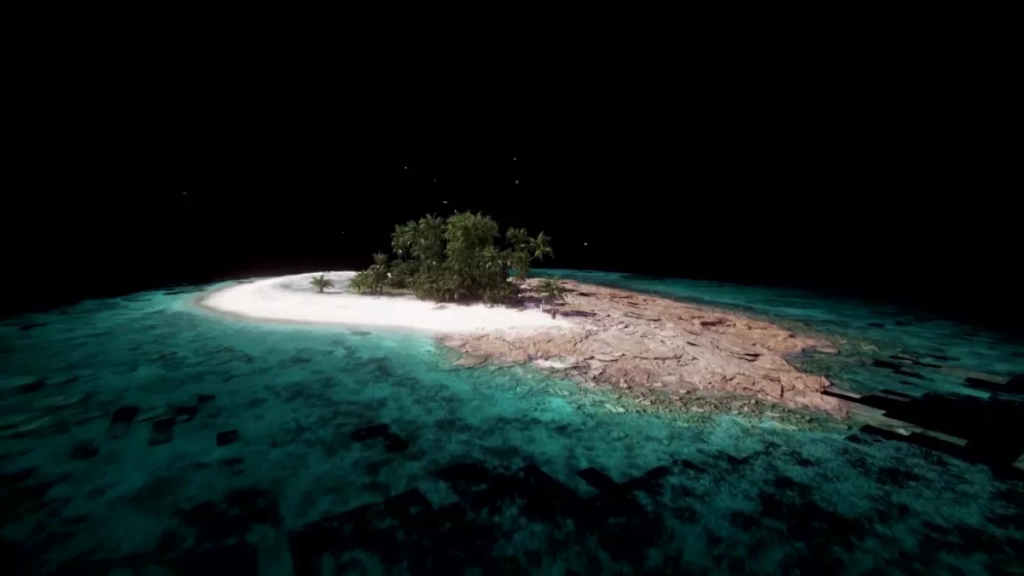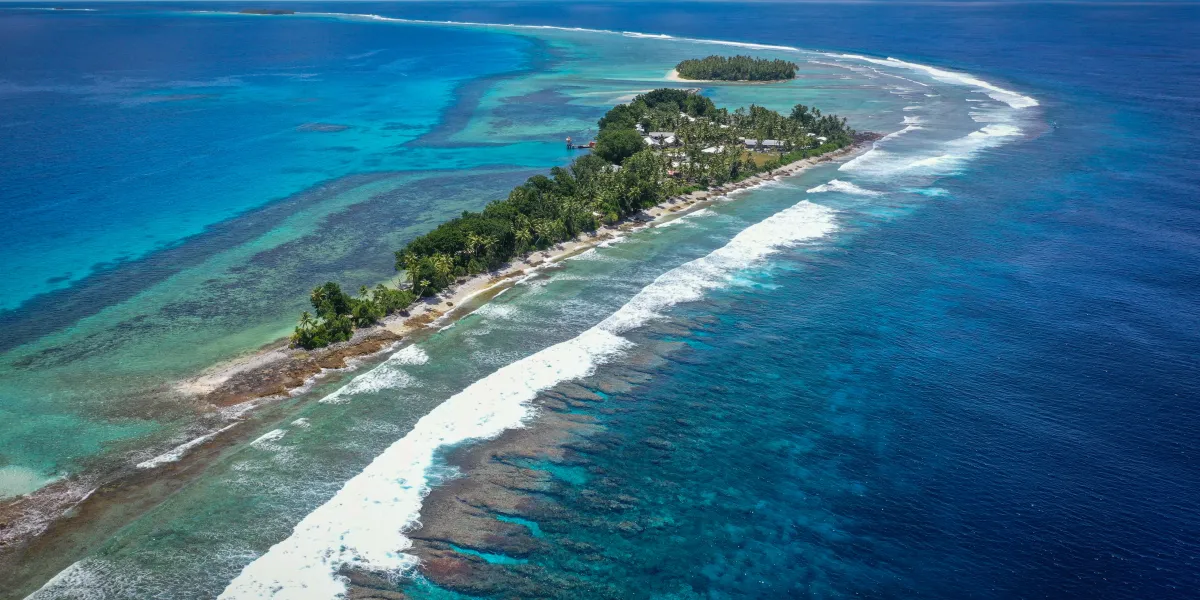Facing the harsh realities of climate change, Tuvalu is innovatively preserving its identity, culture, and statehood through a digital twin.
Tuvalu, a small archipelago in the Pacific Ocean consisting of nine coral islands, is facing an existential threat from climate change. Rising sea levels are steadily encroaching on its shores, with projections indicating that much of its land, infrastructure, and homes will be below the high-tide line by 2050.
This alarming situation reflects the broader crisis faced by many small island nations, where erosion, saltwater intrusion, and intensified storms jeopardize their very survival. While some nations build sea walls or reclaim land, This island nation is pioneering a groundbreaking approach: digitizing its entire nation in the metaverse.
A Nation at the Edge of Existence
This initiative, announced by Foreign Minister Simon Kofe at the COP27 conference in 2022, seeks to preserve Tuvalu’s landscape, culture, and sovereignty by creating a digital twin of the nation. In his dramatic video address, filmed against a virtually replicated beach backdrop, Kofe emphasized the urgency of safeguarding Tuvalu’s heritage and identity.
This digital endeavor is not merely symbolic; it is a strategic move to ensure the country’s survival in the virtual realm, even if its physical existence becomes untenable.
Read : $1 Homes for Americans in Ollolai Village of Sardinia Island
The Digital Nation project aims to back up every facet of Tuvalu’s identity—from its natural landscapes and cultural artifacts to its legal frameworks.
Read : Christmas Island: Exploring the Gem of the Indian Ocean
Citizens are encouraged to contribute sentimental items, family stories, and traditional dances for digital preservation, creating an archive that embodies the soul of island nation. This initiative ensures that future generations, including those in the diaspora, can remain connected to their heritage.
Preserving Culture and Sovereignty in the Digital Realm
However, the project extends beyond cultural preservation. Tuvalu faces unique legal challenges, as current international law defines statehood by territory and permanent population—two criteria threatened by rising seas.
By digitizing its governmental functions, including passports and civil records stored on the blockchain, Tuvalu aims to maintain its sovereignty and functionality as a nation-state. This forward-thinking approach positions Tuvalu as a pioneer in redefining statehood for an increasingly digital and climate-affected world.

Despite the ambitious vision, the project has sparked debates. Some critics argue that focusing on digital preservation may divert attention and resources from physical mitigation efforts. Others see it as a complementary strategy.
For instance, land reclamation and coastal protection projects are still underway, demonstrating that the digital twin is part of a broader, multifaceted response to climate change. As Taukiei Kitara, a Tuvaluan research fellow, points out, planning for multiple scenarios is crucial for effective risk management.
The Global Implications of Tuvalu’s Digital Twin
Tuvalu’s bold initiative raises significant questions about the future of small island nations and global climate governance. The project challenges the international community to reconsider its legal and moral obligations toward nations at the frontlines of climate change.
If Tuvalu’s digital statehood gains recognition, it could set a precedent for other vulnerable nations, fostering a more inclusive and adaptive approach to international law.
The initiative also underscores the broader failures of developed nations to curb greenhouse gas emissions. Despite contributing minimally to climate change, Tuvalu and other Pacific Island nations bear the brunt of its impacts.

Activists like Grace Malie emphasize the injustice of this situation, highlighting the cultural and existential stakes involved. For Tuvaluans, their land is more than just territory; it is a repository of identity, dignity, and heritage—elements that cannot be simply relocated or recreated.
While some view the metaverse project as a symbolic concession, others see it as a pragmatic step toward resilience and continuity. The digital twin does not signify surrender but rather a proactive effort to safeguard Tuvalu’s legacy.
It also serves as a poignant reminder of the urgency needed to address climate change. As global temperatures continue to rise, surpassing the critical 1.5°C threshold, the fate of Tuvalu serves as a stark warning for the rest of the world.
A Model for Future Resilience?
Tuvalu’s journey into the metaverse represents both a cry for help and a beacon of innovation. It highlights the existential threats faced by small island nations while showcasing the potential of technology to preserve culture and sovereignty. Whether the world will heed this warning and take meaningful action remains to be seen.
However, Tuvalu’s digital twin stands as a powerful symbol of resilience, adaptation, and the indomitable spirit of a nation fighting to survive against all odds.

